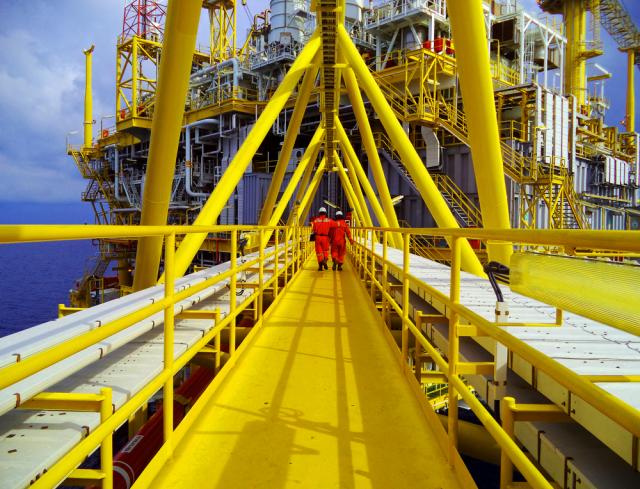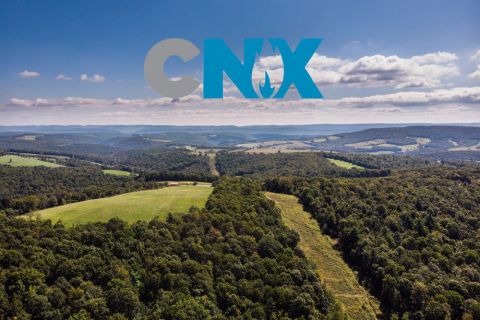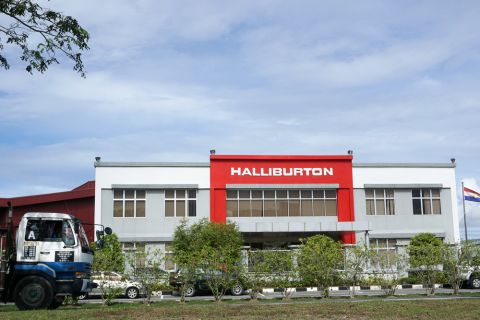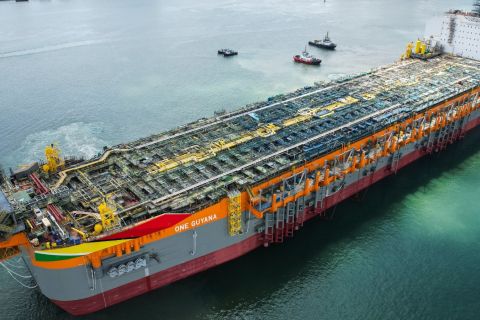
(Source: Shutterstock.com)
A Chevron-led consortium is looking for a partner to develop the second phase of the $5 billion Indonesia Deepwater Development Project (IDD-II) in Makassar Strait off East Kalimantan.
The operator, Chevron Pacific Indonesia, has put the proposed development plan for IDD-II project on hold till the changes in consortium structure are made.
Fatar Yani Abdurrahman, deputy head of Indonesia’s upstream regulator Special Task Force for Upstream Oil and Gas Business Activities (SKK Migas), said the operator informed it of possible changes in the consortium structure for the project without providing the details.
“IDD is looking for a partner. I don’t know [whether] Chevron will be out [of the project] or not, but the structure of the consortium will be changed,” he told the local media last week.
Chevron has a 62% participating interest in the IDD-II project, which covers development of the oil- and gas-rich Gendalo and Gehem fields in deepwater Makassar Strait. Eni, Sinopec and others hold the remaining interest.
The Indonesian subsidiary did not comment on the restructuring process.
Fatar, however, asked consortium members to complete the restructure at their earliest and make efforts to finalize the plan of development (PoD) for the project by early next year. He warned that developers would suffer losses if they continued to postpone agreement on the development plan. The longer the operator postpones the PoD agreement, the narrower the payback period for the project.
Chevron may recover costs for developing the Gendalo and Gehem fields until the existing production-sharing contracts (PSCs) expire in 2027 and 2028 respectively, but not under the new PSCs to be signed. The latter will be based on gross-split in production.
SKK Migas has set a deadline at the end of January to complete the partnership restructuring process, Fatar said.
The consortium and regulator have almost reached an agreement for the project’s development plan, exception being factors like revenue share and extension of PSCs. Chevron has scaled down the cost to develop Gendalo and Gehem to about US$6 billion, down from $12.3 billion, according to a proposal it submitted in October 2018.
The operator has accepted the gross split-based PSC but insists on an additional share of about 10% over and above its due share in the gross-split PSC for the two fields, while the regulator is against it, according to Fatar.
SKK Migas has agreed to extend the PSC contracts for the two fields by another 10 years under the prevailing rules, but the operator seeks more time considering risks associated with the deepwater projects.
The revised development plan proposes constructing two central production platforms as production hubs for Gendalo and Gehem with each having a production facility, subsea drill centers and gas and condensate export pipelines. The platforms, supported by an eight-legged jacket weighing 9,000 tons, will be installed at the identified locations.
Gendalo and Gehem, located in a water depth of about 1,828 m (6,000 ft), are estimated to hold potential gas reserves of more than 2 trillion cubic feet.
The revised plan for the two fields envisages production capacity of 920 million standard cubic feet of gas per day (MMscf/d) and 30,000 barrels per day (bbl/d) of condensate. The original plan of development had 1.12 billion cubic feet per day of gas and 40,000 bbl/d of liquids.
IDD-II is scheduled to begin production by year-end 2023 or early 2024.
The first phase of IDD entailed development of the Bangka oil and gas field in the Rapak PSC in 2016 with an installed capacity of 110 MMscf/d of gas and 4,000 bbl/d of condensate. Produced gas is sent to the Bontang LNG plant as part of an agreement with Pertamina.
Indonesia’s energy ministry said it is keen on continuing Chevron’s role in developing IDD-II, considering the country’s goal of minimizing its dependence on oil imports.
It does not want to see Chevron exit or surrender its operatorship of IDD-II at a time when global majors are showing little or no interest in the Indonesian oil and gas industry. The recent nationalistic policies that forced international companies to exit producing assets in favor of Pertamina have not gone well within the industry.
Exxon Mobil Corp., according to a report, is considering selling its 45% stake in the Cepu Field in East Java, the largest oil-producing field in Indonesia, to focus on better business opportunities.
Indonesian Petroleum Association (IPA) president Tumbur Parlindungan admitted that many existing contractors have lost interest in further exploration in Indonesia due to regulatory instability and an uncertain investment climate, and few new players are entering the market.
A “Gross-split scheme may not be well suited to Indonesia’s oil and gas industry where there are a large number of low-margin, high-cost fields and very capital-intensive projects located in deepwater frontier areas,” he said. “At this point, incentives will play a significant role in the development of the industry.”
Recommended Reading
CNX, Appalachia Peers Defer Completions as NatGas Prices Languish
2024-04-25 - Henry Hub blues: CNX Resources and other Appalachia producers are slashing production and deferring well completions as natural gas spot prices hover near record lows.
Chevron’s Tengiz Oil Field Operations Start Up in Kazakhstan
2024-04-25 - The final phase of Chevron’s project will produce about 260,000 bbl/d.
Rhino Taps Halliburton for Namibia Well Work
2024-04-24 - Halliburton’s deepwater integrated multi-well construction contract for a block in the Orange Basin starts later this year.
Halliburton’s Low-key M&A Strategy Remains Unchanged
2024-04-23 - Halliburton CEO Jeff Miller says expected organic growth generates more shareholder value than following consolidation trends, such as chief rival SLB’s plans to buy ChampionX.
Deepwater Roundup 2024: Americas
2024-04-23 - The final part of Hart Energy E&P’s Deepwater Roundup focuses on projects coming online in the Americas from 2023 until the end of the decade.





